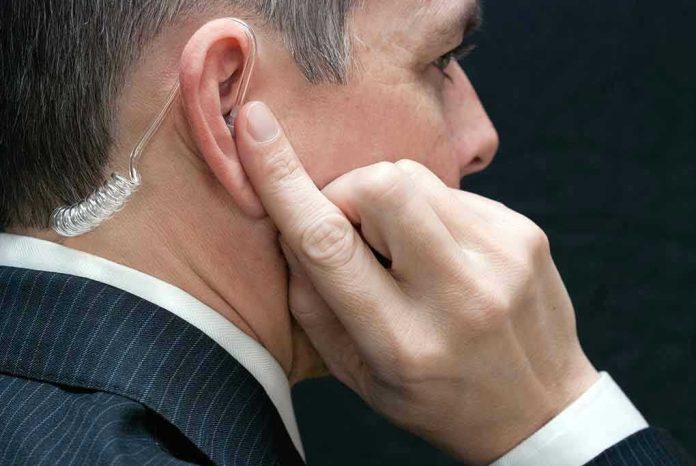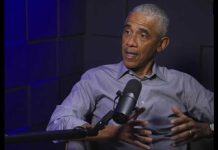
Six Secret Service agents were suspended after the attempted assassination of Donald Trump at the Butler rally, but the deeper story reveals a jaw-dropping tale of government failure, accountability theater, and reforms that leave Americans wondering if anyone in charge ever learns a thing.
At a Glance
- Six Secret Service agents suspended after Trump assassination attempt in Butler, Pennsylvania
- Investigations found the attack was preventable, citing leadership and training failures
- Director Kimberly Cheatle resigned; agency now under interim leadership focused on reforms
- New security measures include military-grade drones and mobile command posts
Six Suspensions, One Catastrophic Security Collapse
Six Secret Service agents—whose job was to protect the man who could become the next President—were suspended without pay for periods ranging from 10 to 42 days following the July 13, 2024 Butler, Pennsylvania rally shooting. The shooter, Thomas Matthew Crooks, managed to claim a life and wound two others while grazing Trump’s ear before being neutralized by a Secret Service sniper. In a move that reads more like a bureaucratic shrug than real accountability, the agency has not released the names of those suspended, only noting they ranged from supervisors to line agents. Upon their eventual return, these agents were shuffled into roles with less responsibility, a tactic that feels like swapping deck chairs on the Titanic after hitting the iceberg.
The agency’s actions come after a bipartisan House task force and the Department of Homeland Security both concluded the attack was “preventable.” Their investigations pointed to breakdowns in leadership, training, and basic operational protocols. There’s nothing more infuriating than watching the very people tasked with protecting leaders and, by extension, the Constitution, fumble on the biggest stage—and then pat themselves on the back for “reforms.”
Leadership Changes and the Accountability Mirage
Kimberly Cheatle, the Secret Service director at the time, resigned ten days after the shooting, a symbolic gesture that does little to address the rot beneath the surface. Matt Quinn, now acting as the chief reformer, has gone on record stating, “We are laser focused on fixing the root cause of the problem.” But how often do we see this cycle? Catastrophe, public outrage, a sacrificial resignation, a few suspensions, and then a return to business as usual. The real problem isn’t just a handful of agents; it’s a culture that allows complacency and incompetence to fester until it erupts in tragedy.
Quinn has tried to assure the public that “Secret Service is totally accountable for Butler. Butler was an operational failure and we are focused today on ensuring that it never happens again.” Yet, for many Americans, those words ring hollow after years of watching government agencies dodge real consequences while everyday citizens pay the price—with their safety and, sometimes, their lives.
Reforms, Technology, and the Real Cost of Failure
In the wake of the Butler debacle, the Secret Service is scrambling to modernize, rolling out military-grade drones and mobile command posts to improve communication and coordination with local law enforcement. These measures are long overdue, as previous protocols failed spectacularly when they were needed most. The agency claims these tools will prevent future lapses, but without a complete overhaul of the bureaucratic mindset and a genuine commitment to accountability, gadgets alone are just window dressing.
The broader impact of this failure cannot be overstated. It has deeply shaken public confidence in the Secret Service’s ability to protect national leaders. For Trump and his supporters—who already feel under siege by a government that seems more interested in virtue signaling and self-preservation than in upholding the law—the Butler incident is just more proof that the bureaucracy is broken. The Secret Service’s failures have political, social, and even economic ramifications as demands for new technology and training stretch budgets already strained by government overspending and misplaced priorities.
A Systemic Failure Demands Real Reform
Security experts are calling the Butler shooting a “wake-up call.” Congressional investigators and the DHS have hammered home that this was a preventable attack, born out of systemic failures in leadership and training. Former officials note the agency’s protocols are decades out of date, and coordination with local law enforcement was practically nonexistent. The new technology being introduced is necessary—but it’s a band-aid on a bullet wound if the culture of complacency remains.
Many commentators argue that suspensions and scapegoating are insufficient. What’s needed is a fundamental shift in how the agency operates, with real accountability at every level and a willingness to confront uncomfortable truths about institutional failure. Until then, Americans are left to wonder: if the Secret Service can’t protect a presidential candidate, what faith can we have in the rest of the government’s promises?



